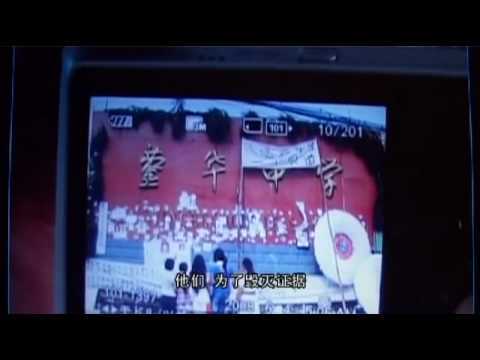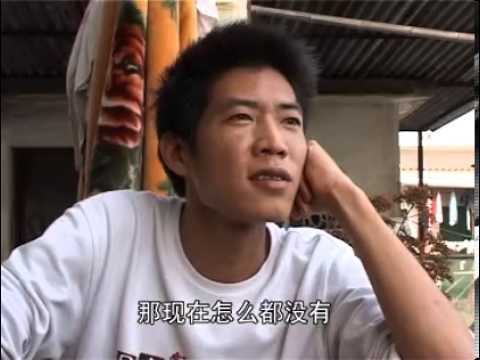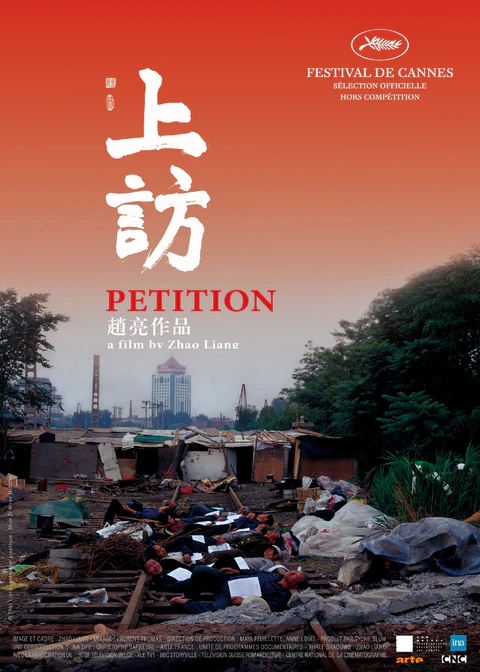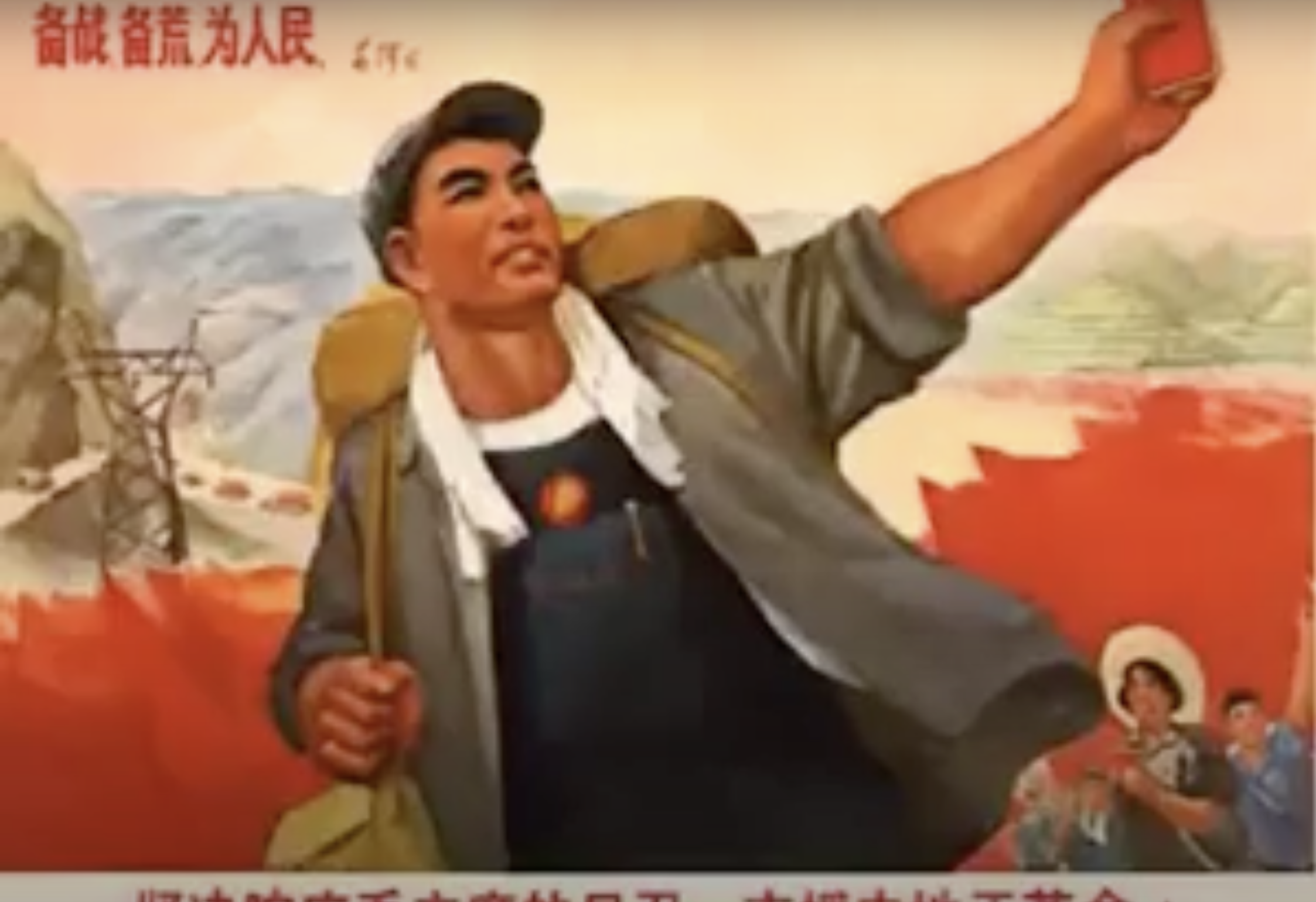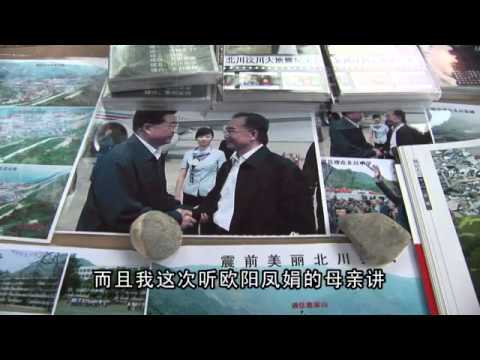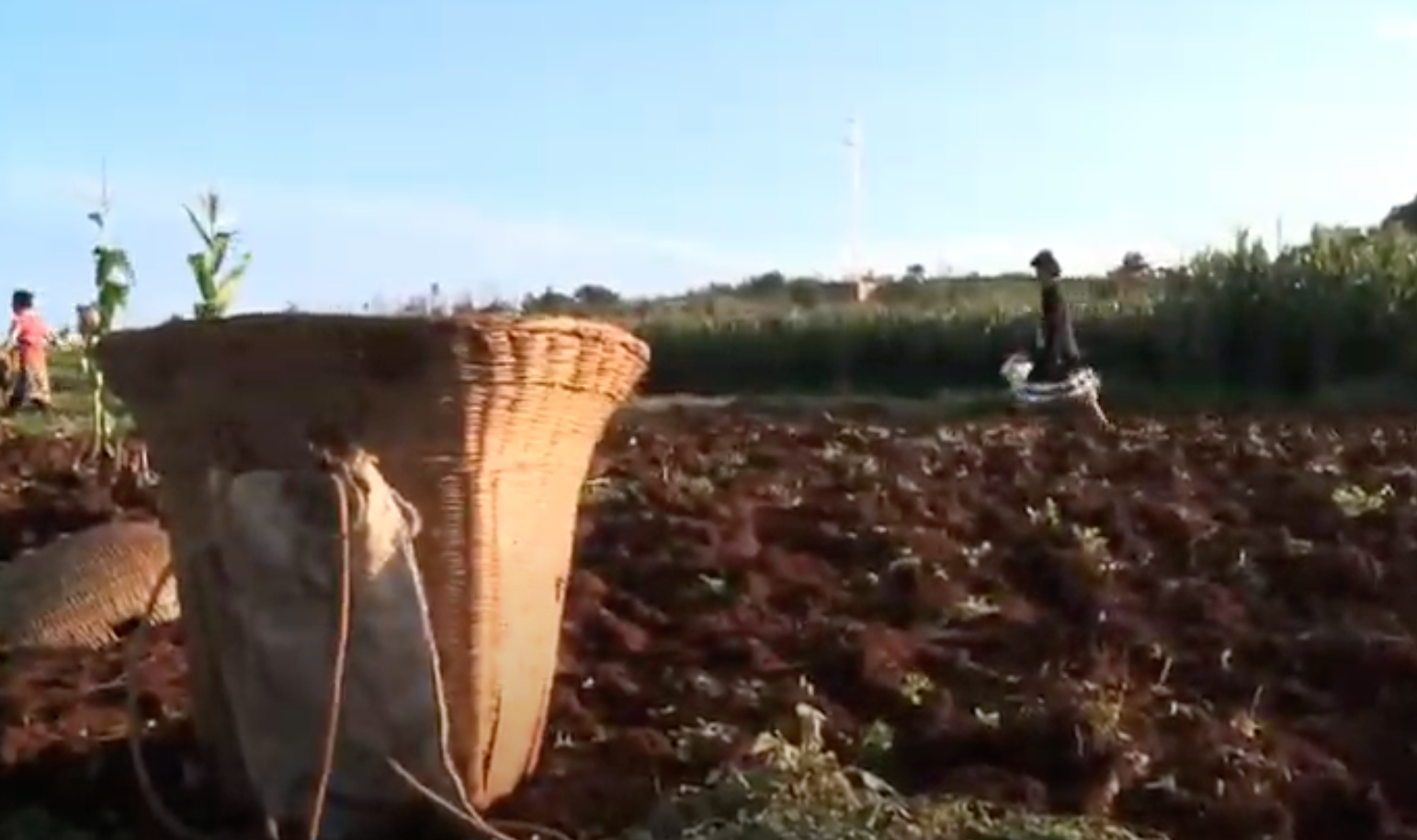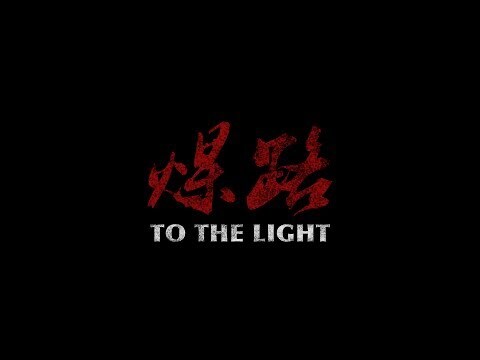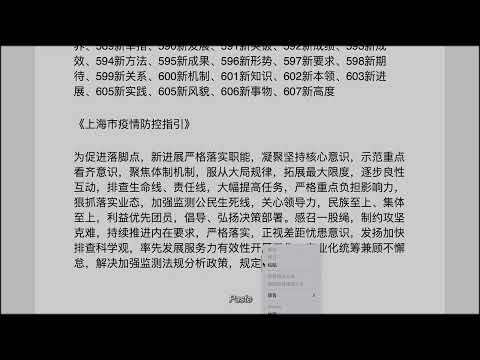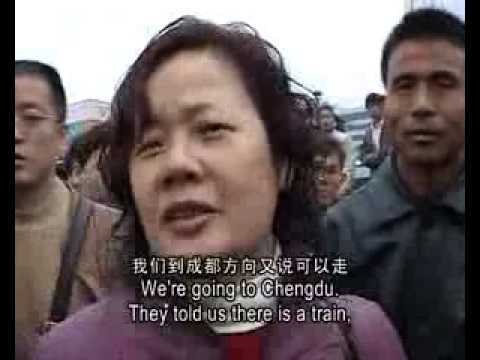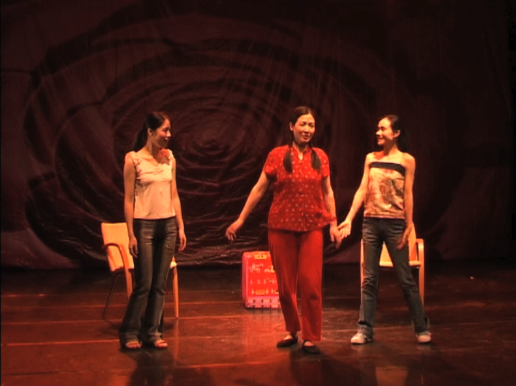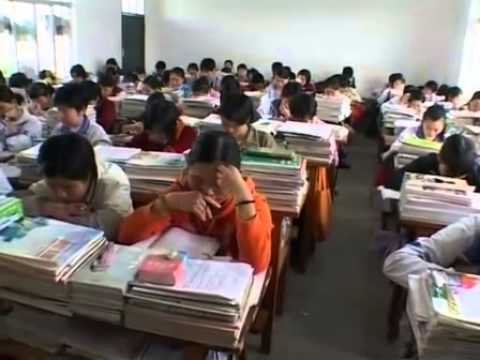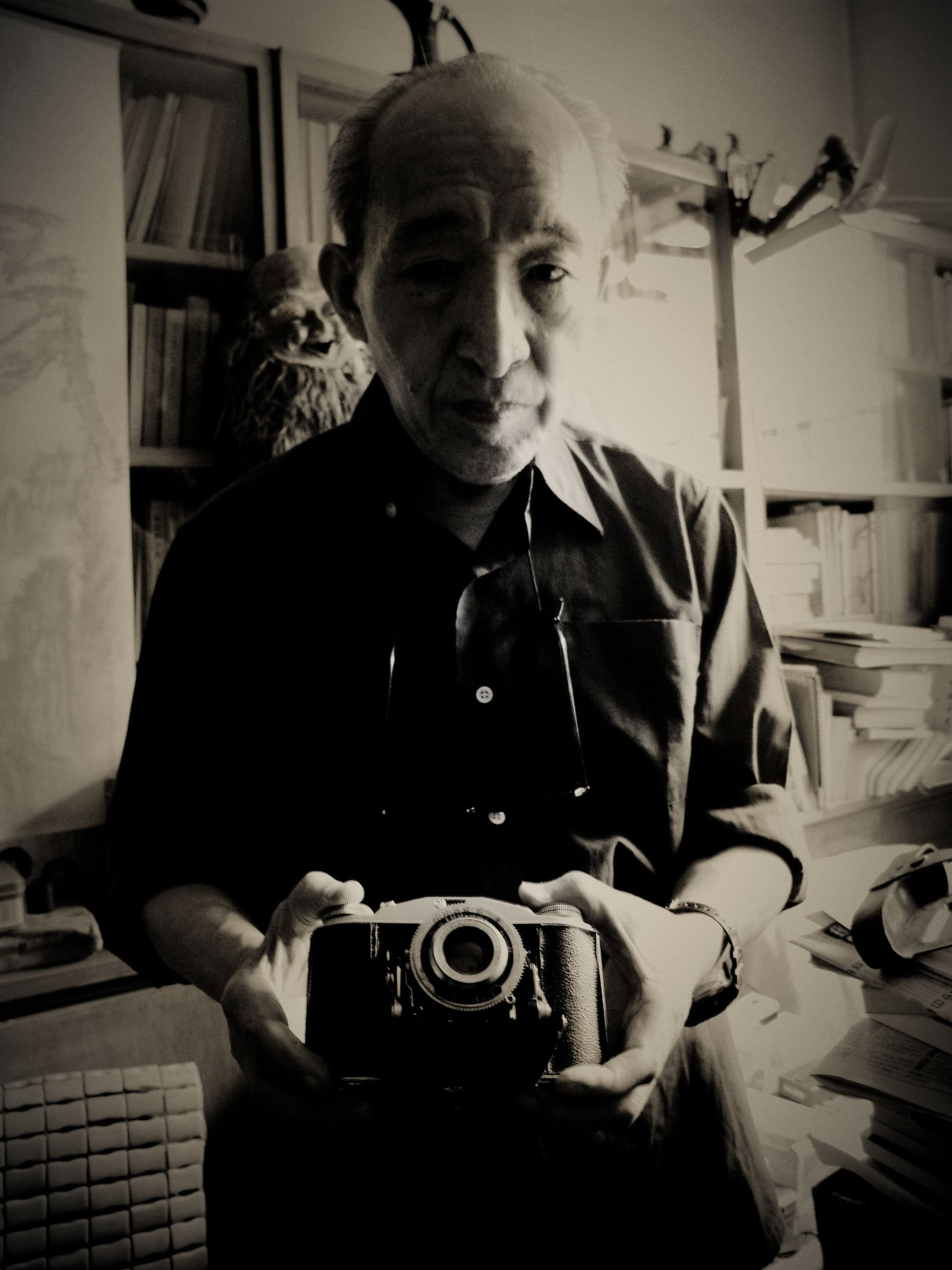Explore the collection
Showing 101 items in the collection
101 items
Film and Video
Our Children
This documentary records the stories of the 2008 Sichuan earthquake. The narrators mainly consist of the parents of students who fell victim to the earthquake, and the film is interspersed with comments from media workers, independent scholars, internet authors, geologists, and environmental protection and legal workers. They expressed their views on the Sichuan earthquake from different perspectives.
This film is in Chinese with Chinese subtitles.
Film and Video
People’s Representative Yao Lifa
Yao Lifa, a teacher from Hubei, was an independent candidate for the 2003 General Election of Deputies to the National People’s Congress. This documentary records the process in which Yao publicized and educated the public on election laws, and his experience with the grassroot electoral campaign. This documentary also reflects the budding grassroot awareness of civil rights in China through voices from the media and ordinary people.
This film is in Chinese with Chinese subtitles.
Film and Video
Petition
The domestically-released version of "Petition" consists of three parts: “The Masses,” “Mother and Daughter” and “Beijing South Railway Station.” Part one, “The Masses,” brings together the stories of petitioners of various backgrounds, who all for different reasons, ended up walking the same path. “The Masses” gives a comprehensive account of what is petitioning and and follows the process.
Part two, "Mother and Daughter," follows the story of Huaying, who brought her daughter Xiaojuan alongside her from the countryside of Jiangsu to Beijing to petition when Xiaojuan was only four years old. Over the next twelve years, they lived a wandering life. "Mother and Daughter" spans the longest period among all the parts of Petition, from 1996 to 2008. It witnesses the growth of Xiaojuan over ten years of petitioning, not only describing the sorrow of Chinese petitioners, but also revealing how long-lasting petitions cases affect the fate of the next generation. In official reports, petitioners lack a voice and appear to be even more marginalized under the media’s tactics. It also raises the issue of forced psychiatric confinement of individuals the Chinese government deems difficult.
“Beijing South Railway Station" surveys the "petitioner village," a residential area near the station that was once home to tens of thousands of people from all over the country. It was eventually demolished by authorities in preparation for the 2008 Olympics. The film captures bungalows being knocked down, shacks being flattened, and security police chasing after residents, the latter not given the time to grab any necessities.
Zhao Liang recalls dressing like the interceptors when filming interceptors, and dressing like a petitioner while filming petitioners. “I had several outfits, and tried to stay low key, using the smallest cameras possible.” The film went on to win the Halekulani Golden Orchid Award for Best Documentary Film at the 29th Hawaii International Film Festival, and a Humanitarian Award for Documentaries at the 34th Hong Kong Film Awards.
Film and Video
Postcard
After retiring from her job as a cadre, Wang Lihong fulfilled what she saw as her civic responsibility to become more active in women’s rights in China, especially the protection of their legal rights. In 2009-2010, she became involved in the “Fujian Netizen Case,” which resulted in the arrest of three human rights activists, who all sought to investigate the death of a 25-year-old women believed to have been murdered in a gang rape by men associated with the local police. Wang Lihong wrote letters to the General Secretary of the Fujian Provincial Committee of the Communist Party of China every day for nine consecutive days, calling on the authorities to let them go home for the New Year. For this reason, she was criminally detained by the authorities in March 2011 on suspicion of "picking quarrels and provoking trouble." The case was heard by the Beijing, Chaoyang District People's Court on August 12; nearly a month later, on September 9, the court issued a guilty verdict and sentenced Wang Lihong to nine months in prison. The film documents her case, and raises questions about the accountability of the local government and police. Another one of Ai Xiaoming’s films, “Let the Sunshine Reach the Earth,” documents Wang Lihong’s trial process in more detail.
This film is in Chinese with Chinese subtitles.
Film and Video
Ram
The documentary "Ram" was filmed by independent director Tiger Temple in 2016 and is available here in a revised version by the author in 2021. The film documents a real-life incident that took place in Xi'an during the "1983 crackdown". The encounter of the artist Gong Yang (real name Li Xiaoming), the main character of the documentary, is quite representative. It reflects the cruelty and absurdity of the "1983 Crackdown" political campaign launched under the direction of Deng Xiaoping.
Film and Video
Red Art
This documentary interviews painters, Red Guards, as well as current collectors and researchers in China and the United Kingdom. It presents the emergence, spread, and impact of the propaganda posters during the Cultural Revolution. The film includes interviews with Liu Chunhua, the author of Chairman Mao Goes to Anyuan, Guangzhou painter Li Xingtao, Guangzhou old Red Guard Zhou Jineng, and others. Art museum personnels, art critics, journalists, professors, and researchers in both China and the United Kingdom speak about their understanding of the art of the Cultural Revolution from various perspectives.
This film is in Chinese with both English and Chinese subtitles.
Film and Video
River of Oblivion
In this film, the filmmaker accompanied volunteer Xie Yihui as she visited the parents of students who died in the 2008 Sichuan earthquake to find people with knowledge of the architectural blueprint of the Beichuan Middle School. This documentary presents the rise of earthquake tourism and records the mindset of volunteers, bereaved parents, and tourists at the anniversary of the earthquake. This film is interspersed with historical film materials of Beichuan Middle School’s building samples taken by parents in 2008, as well as architect Zhu Tao’s analysis of the construction drawings and building quality. It also shows the perceptions of mothers, teachers, and photographers.
This series of films are in Chinese with Chinese subtitles.
Film and Video
Songs of Maidichong Village, The
This film was shot in a village called Maidichong in the mountains of Yunnan Province. The village is inhabited by a community of Miao people who are Christians. 100 years ago, the British missionary, Mr. Burghley, came to this village, fostered the Miao language, and brought faith, education, and medical care to the Miao people. This movie tells this history and how their journey of faith was brutally suppressed during the Cultural Revolution. It also presents the challenges they face today.
Film and Video
South Side Street
South side Street near Tiananmen Square in Beijing has long been a gathering place for some homeless people as well as petitioners. The director became involved in the homeless relief charity in 2007, and continued to follow the film, which the director finished editing eight years later. The film was selected for the 12th China Independent Film Festival Documentary Competition.
Film and Video
Spark
<i>Spark</i> tells the story of a group of young intellectuals who risked their lives to voice their opinions about the Chinese Communist Party in the 1950s and 1960s. Following the Hundred Flowers Campaign of 1957, many intellectuals were branded as Rightists and banished to work and live in rural China. A group of students from Lanzhou University were among those sent to the countryside. There, they witnessed mass famine which resulted from government policies to collectivize agriculture and force industrialization in rural China. Shocked and angered by the government’s lack of response to the Great Famine, these students banded together to publish <i>Spark</i>, an underground magazine that sought to alert the Chinese population of the unfolding famine. The first issue, printed in 1960, included poems and articles analyzing the root causes of failed policies. However, as the first issue of <i>Spark</i> was mailed and the second issue was edited, many of these students, along with locals who supported the team, were arrested. Some of the key members of the publication were sentenced to life imprisonment and later executed, while others spent decades in labor camps.
In this 2014 documentary, Hu Jie uncovers the stories of the people involved in the publication of <i>Spark</i>. He conducts interviews with former members of the magazine who survived persecution, and also shows footage of the manuscripts of the magazine. A digital copy of the original manuscript of the first volume of <i>Spark</i> is also held on our website.
This film was awarded the Special Jury Prize for Chinese Documentary at the 2014 Taiwan International Documentary Film Festival and the Award of Excellence in the Asian Competition. Later, it won the Independent Spirit Award at the Beijing Independent Film Festival.
Film and Video
Taishi Village
In the fall of 2005, residents of Taishi Village became increasingly frustrated and angered by the sale of land by village officials; hundreds of villagers signed a petition calling for the removal of the village chief. The villagers occupied the village committee’s financial office and expressed their demands through sit-ins and other forms of protests. The government dispatched the police to arrest village activists, but the villagers insisted on starting a formal recall process. The government finally sent a team to the village to verify the signatures for the petition.
<i>The Taishi Village</i> recall incident generated attention from Chinese and foreign media, and caused uneasiness among local government officials. On September 12, 2005, police arrested dozens of villagers who were participating in a sit-in in the village committee room. Despite the pressure, villagers elected a committee to remove the village committee director. The government then dispatched more men to exert pressure, forcing elected members to withdraw one by one. Hired patrol teams eventually drove lawyers and reporters out of the village.
This documentary records the protest scenes and tragic ending of Taishi village’s movement for autonomy, and presents the surging rights consciousness in rural areas in Guangdong. This incident demonstrates villagers’ ability to exercise their right to vote and the government’s inertial approach to grassroots democracy movements.
This documentary is in Chinese with Chinese subtitles.
Film and Video
The Central Plains
Due to poverty in rural areas in Henan Province—part of China’s Central Plains—many farmers contracted AIDS by selling their blood. This documentary dives into the lives of these AIDS patients, depicting the manner in which they cope with life, officials’ responses, and the stories of volunteers who helped the infected villagers. The filmmaker visited several villages with high incidence of AIDS, interviewing and recording people’s accounts of how the “plasma economy” arose. This documentary presents the living condition of families and individuals, especially women and children, who contracted AIDS due to blood donation and blood transfusions, and demonstrates the formation of grassroots organizations.
This film is in Chinese with both Chinese and English subtitles.
Film and Video
The Coal Road
This documentary tells the story of the lives of three families of coal miners in the mountains of eastern Sichuan. Winner of the 35th Margaret Mead Movie Director's Award in 2011. Directed by Liu Yuanchen.
Film and Video
The Gulag Book
This movie records how Zhang Xianzhi went from being a soldier to a prisoner and then to an independent writer. His experience and thought process is compared with that of the Russian writer Solzhenitsyn. The title of the film is taken from the title of Zhang Xianzhi's book <i>Anecdotes from the Gulag</i>, which takes the viewer on a journey to China's Gulag Archipelago, a labor camp in Sichuan. The extreme conditions and little-known tragic history of the camp are presented. The movie is 42 minutes long and was filmed in 2012.
Film and Video
The Memo
In the spring of 2022, a wave of COVID-19 exploded in Shanghai. Under the policy of “Zero COVID,” 24 million residents were put under forced lockdown. Filmmakers and reporters used their phones, televisions, the internet, and other materials to capture scenes of lockdown and disputes between officials and civilians in Shanghai. Producers of this short film titled <i>The Memo</i> believe that it is necessary to record this historic episode in order to prevent our memories from fading away.
The production team, which was founded in 2020, strives to create works about the lower classes of Chinese society. <i>The Memo</i> was nominated for the Clermont-Féron Short Film Festival.
Film and Video
The Train to My Hometown
As the Lunar New Year approached in 2008, the main north-to-south railway line, the Beijing-Guangzhou line, was halted and the trains stopped running due to tickets being overbooked. With the trains still not running, thousands of migrant workers from Guangdong gathered at the Guangzhou Railway Station, waiting for trains bound for their hometowns. The Guangdong Province government immediately launched an emergency transportation plan. For the first time, the trading center hall where the Canton Fair was held was transformed into a waiting room for migrant workers. Many volunteers provided services to relieve the fears of worried migrant workers.
The crowd began to panic as rumors swirled, and people were trampled underfoot. One was a young female worker, Li Hongxia. Another migrant, Li Manjun, who was eager to travel home to get married, was electrocuted and died after attempting to jump onto the train. This documentary records the chaos at the Guangzhou Railway Station during the Lunar New Year’s Eve period, from January 27 to February 6, 2008. The filmmaker also visited Shenzhen, Shaoguan, Ruyuan, as well as conducted interviews in victims’ hometowns in Jianli, Hubei, and the rural regions of Yueyang, Hunan.
This film is in Chinese with both English and Chinese subtitles.
Film and Video
The Vagina Monologues -- Stories Behind the Scenes
<i>The Vagina Monologues</i> is a pioneering feminist drama created by the American playwright Eva Ensler. In 2003, teachers and students at the Gender Education Forum of Sun Yat-sen University in China adapted the play and added artistic interpretations of Chinese women's gender experience. The adapted play had its first performance at the Guangdong Provincial Art Museum. This documentary records the attitudes of governments across China towards the play as well as women's perceptions of the play and its connection with their personal experiences. It also highlights the current political and cultural ecology of China.
Film and Video
Third year of High School
Seventy-eight students from Fujian's Wuping No. 1 High School take the college entrance exam as the only way to enter university. This brutal puzzle shows us how teachers and students who regard grades as more important than anything else are bred under China's education system.
Film and Video
Though I Am Gone
On August 5, 1966, Bian Zhongyun, a 50-year-old vice principal of the Girls High School affiliated with Beijing Normal University, was beaten to death. The murder was by some of her students, a group of female Red Guards from the school. Bian was the first educator to be killed in Beijing during the Cultural Revolution. The night Bian was killed, Deng Xiaoping's two daughters, Deng Nan and Deng Rong, found Bian's husband and told him that they could only say that Bian died of high blood pressure due to illness, but not that Bian was killed. In the end, no one was criminally prosecuted.
This film is widely regarded as one of Hu Jie's most famous for its portrayal of Bian's husband, Wang Jingyao, and his efforts to document his wife's murder.
Follow director Hu Jie on his <a href="https://www.youtube.com/@jiehu6613">YouTube channel</a>.
Film and Video
Three Days in Wukan
Wukan is a village in Luwei City, under the jurisdiction of Shanwei City, Guangdong Province. From 2011 to 2016, Wukan villagers have continued to fight to protect their land and fight for villagers' rights. Facing strong pressure from the government, some even paid with their lives. In the process, the villagers had elected their own villagers' committee by one person, one vote to practice their democratic rights. Although the protests were eventually suppressed, the impact was far-reaching. Ai Xiaoming rushed to the scene at the beginning of the Wukan incident and left this precious record.
